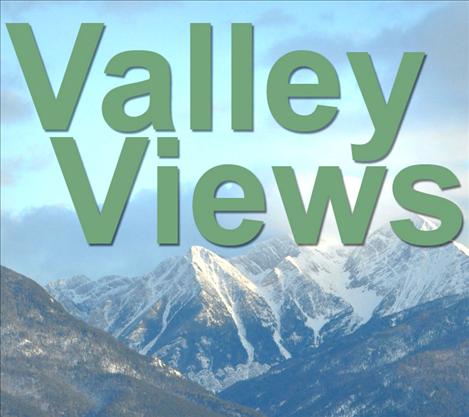Class II gaming hurts low-income tribal members
Hey savvy news reader! Thanks for choosing local.
You are now reading
1 of 3 free articles.
I intended to write this some years ago when the CSKT tribe decided to remodel KwaTaqNuk and Gray Wolf Peak casinos, but I decided it was futile. The different council members I had talked to were all sold on big gambling Nevada attitudes. They were not concerned with who it would hurt. Jim Steele, Jr., a councilman at the time, said it was a “sovereignty issue.” What price must our members suffer for sovereignty?
In my last set of minutes I discovered there is one councilwoman, based on her principles and ethics, who shares my attitude about the tribe participating in gaming (gambling). I applaud Shelly Fyant for this as too many of our low income people have been and still are being victimized by our Class II gaming.
Several years ago I researched many studies done by credible organizations showing the pros and cons of tribal gaming. Here are some important facts I gleaned from these many studies.
Only 15 percent of the tribal casinos generate 85 percent of tribal gaming revenues. These casinos are generally coastal high density population areas. If not coastal they are located near interior large population areas. This means the rest (85 percent) of tribal casinos share only 15 percent of the total revenues generated in all tribal casinos. For example, Spokane casinos have a greater population in a 50 mile radius around their casinos than the entire population of Montana; plus, Spokane is a major business hub of the interior northwest.
Of those casinos that are of the lower income ones the main pro is that they do generate some low income jobs on reservations that have high unemployment. However, most are minimum wage jobs without any employee benefits (annual, sick or holiday leave or retirement). Most of those tribes do not see any significant income for their tribal government.
When the Indian Gaming Act was passed it defined what could be classed as Class II games. It excluded electronic gaming machines but included bingo and similar types of gambling. Someone discovered a gray area and companies like Rocket developed an electronic gaming machine that also included a bingo top prize. This requires those tribes using it to enter into an agreement with the electronic company and their machines in order to have bingo on their machines and sneak around the Indian Gaming Acts definitions. There is and has been steady attempts to declare those machines illegal under the acts definitions, and will continue to be. Those challenges won’t go away. If those machines are eventually declared illegal, Class II gaming as we know it will no longer exist.
The problem with this type of gaming is the tribe must join with a central bingo system where their machines are fiber-optically connected together at some remote computer terminal. The tribes must pay a premium to those centers to belong and have to belong if they use electronic gaming machines without a state compact. There went tribal sovereignty.
Most studies show that at least 40 percent of every dollar passing through those machines is sent off to the gaming center that holds the patented ownership for the bingo system. I was told by an ex-KwaTaqNuk administrative authority five years ago that it was much higher than 40 percent. However, I have no way to verify this as when I have challenged tribal council members, I get vague answers. So I settle for the studies’ number of at least 40 percent.
The studies also showed that 80 percent of the gamblers using tribal casinos live in surrounding communities, unlike Nevada, where more than 90 percent of gamblers are a transient population passing through that state. Unlike Nevada gambling, where most of that money is out of the area money brought in our reservation, gaming revenue is probably 80 percent local dollars and at least 40 percent is being bled off to and sent to a distant state where companies like Rocket are centered. The studies I read all showed that if 40 to 50 percent of the gaming revenue is leaving a low economic area (like ours) and sent off many states away, it bleeds the local economy of dollars that would otherwise remain in the community and continue circulation there. It thus has serious effects on those types of depressed income areas.
Another opinion I would like to express is that the CSKT casino profits are based on exemptions from operation costs off reservation casinos face. CSKT casinos are exempt from federal and state income tax, property and personal property taxes as well as operational licenses and fees. My opinion is that CSKT profits to date are actually derived from non competitive exemptions, not competition based income. I believe that without these exemptions the tribe would be lucky to break even.
However, that isn’t my main dislike of Class II gaming. It is a very addictive and expensive form of gambling and hurts too many of our low income tribal members. Our tribal leaders should consider that our people matter more than their big dreams of big income from big Nevada-type gambling. Working their own people at minimum wages with no benefits isn’t a sign of that.
Thank you Shelly Fyant. We at least have one councilperson that puts the welfare of their membership first when it comes to gambling.
















